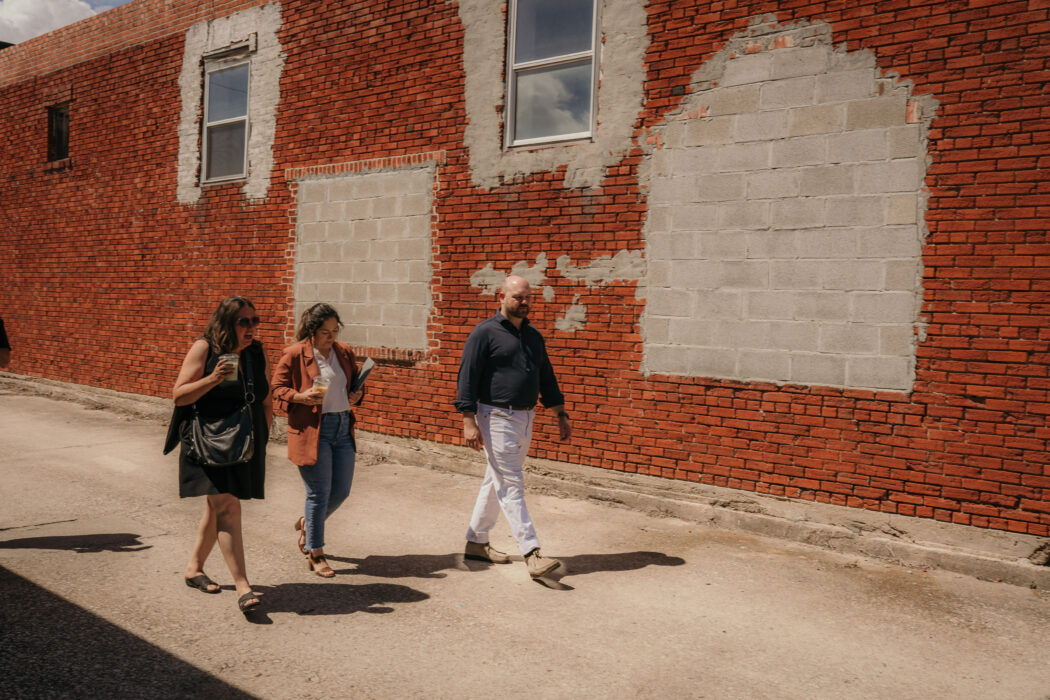Is your rural community ready for an incubator feasibility study?
If your community is curious about whether or not its are ready for, or would benefit from an incubator, we’ve put together some questions to think about.
From RISI’s experience working with rural communities across the country, we know Incubator spaces are critically important to rural tech ecosystems.
Incubators expedite the creation and growth of startups, which in turn contribute to the tax base, create high-wage tech jobs for the local workforce, and develop an inclusive culture that provides access to wealth creation opportunities across the full community. Our collaborating organization, the Center on Rural Innovation, created the Rural Innovation Network, a nationwide community of change agents and local leaders working to advance the economic future of small-town America, which is home to successful rural tech incubators like:
- Codefi in Cape Girardeau, Missouri
- Gig East in Wilson, North Carolina
- 20Fathoms in Traverse City, Michigan
The RISI Entrepreneurship team partners directly with rural communities to produce custom incubator feasibility studies. These studies identify a strategy and business profile for a potential incubator, and are often requirements for grants or other financing options.
Do you think your community would benefit from an incubator? Here are three questions to ask if you’re considering it:
What evidence do I have of entrepreneurial demand?
While establishing entrepreneurial demand is critical to incubator feasibility, the RISI team works with communities at every stage of ecosystem development to create strategic plans. Don’t count yourself out if you don’t already have entrepreneurship services at scale.
For example, we are working with the Ada Jobs Foundation (AJF) of Ada, Oklahoma, to realize their goal of having a successful tech incubator. AJF currently has a 100-square-foot incubator space within its office that houses one startup — that’s enough for AJF to secure significant federal grants, fully funding the construction of an incubator facility, and several years of staffing.
Is there a clear leader or organization spearheading the project?
Having a clear person or entity responsible for the success of an incubator’s launch and growth is vital to its success. In rural places, it’s often local nonprofits, government staff, and local chamber representatives in this leadership role.
This is to be expected at first, but you will need to formulate a plan to budget and hire full-time personnel to run the incubator and its programs. This is a problem the RISI team works with communities to solve in each feasibility study.
Who would I bring on as key partners?
An incubator’s impact is limited by the scope of partners on board with the project. Local colleges and universities, small business centers, government offices, nonprofits, businesses, mentors, and investors are great examples of the range of individuals that are key to an incubator’s success.
For an example of what this looks like, picture this: In Gadsden, Alabama, the chamber of commerce brought together statewide nonprofits, site developers, a regional K-12 superintendent, presidents of higher education institutions, entrepreneurs, angel investors, and local business leaders for a day of focus groups and workshops specifically related to a feasibility study. In one day, this group was able to collectively envision an incubator space — including its value proposition and ways it could be of service to the various groups they represent across the community.
This was a powerful first step toward building buy-in and awareness of the project. Involving and collaborating with core community members and leaders from a wide range of local groups and stakeholders is not only the first step, but a step to continue at every point in the development of an incubator space in order for it to truly be a place where community can be built and supported. Or as one entrepreneur in a focus group in Ada said: “A place where community can happen.”
What’s next for you?
If answering those questions reinforced your interest in developing an incubator in your community, or if you came away with more questions, reach out to the RISI entrepreneurship team today!
